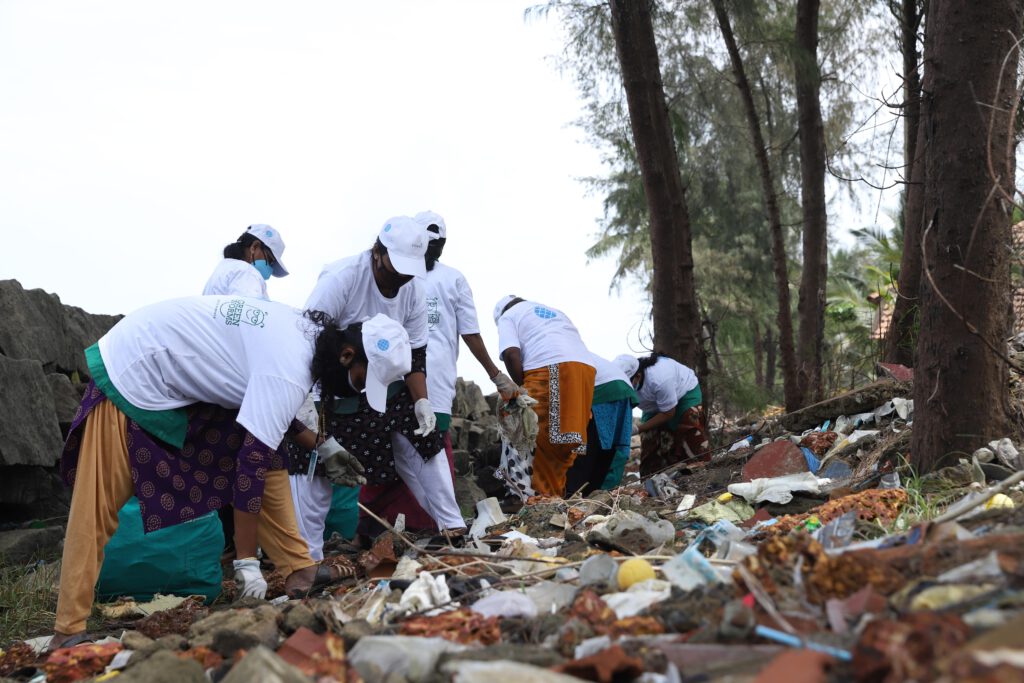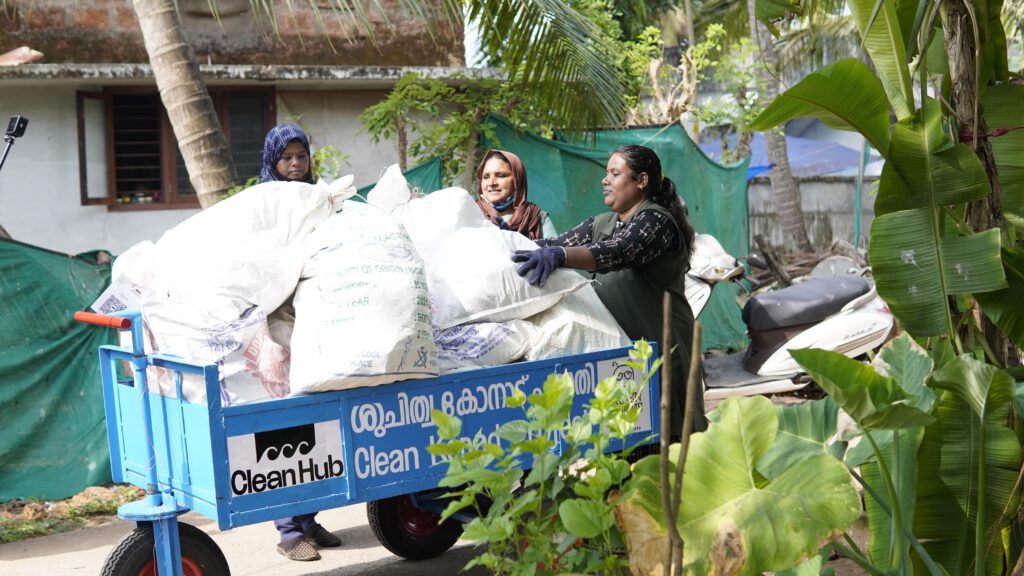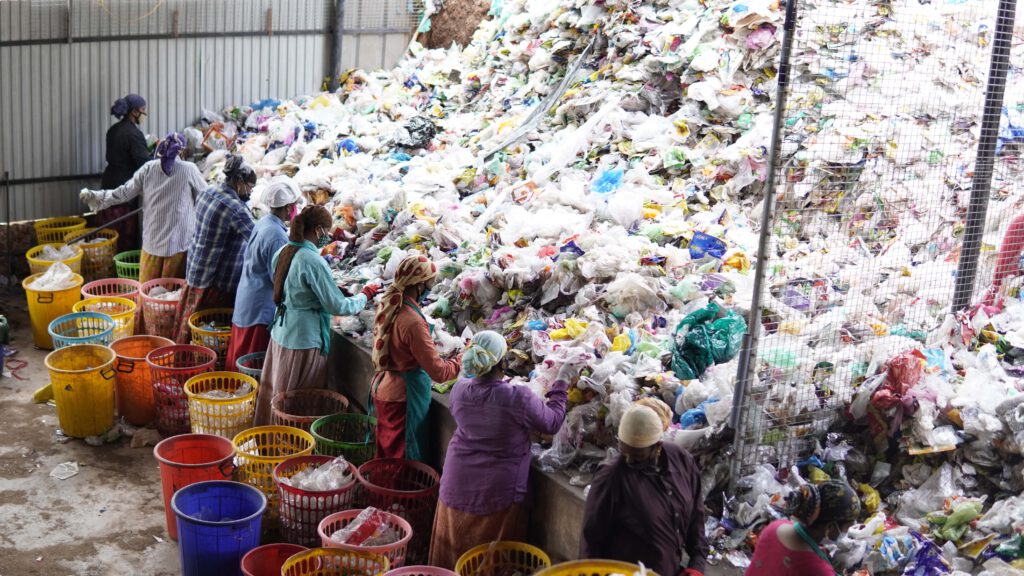Über 100 Millionen Tonnen Müll verschmutzen die Meere und sind eine Gefahr für Tiere und Menschen. Seit unserer Gründung im Jahr 2020 tragen wir mit unserem Partner CleanHub dazu bei, dass Strände von Plastik befreit werden und weniger Müll ins Meer gelangt. In diesem Interview gibt CleanHub Einblicke in ihre Arbeit.
- Can you explain in a few sentences how CleanHub works?
Plastic doesn’t walk itself into the oceans and rivers; people do it. Through poor management or lack of accessible and affordable alternatives. But it is possible to make plastic a sustainable material by dealing with waste properly. By supporting us, brands are making a real difference.
Globally, around 91% of plastic is not recycled. It’s often just dumped or sent to landfills, where it can take up to 1,000 years to decompose. Every year, 11 million tonnes of that plastic end up in streams, rivers – and ultimately our oceans.
This is where it damages habitats and wildlife – and, via the food chain, micro-plastic gets into our bodies, even finding its way into the human placenta.
Many brands are taking action by opting for plastic-free packaging or biodegradable materials. But for the majority of companies, it’s not yet possible to replace all the plastic in the typical supply chain. The problem isn’t going away anytime soon so for the time being a lot of companies rely on plastic to meet demand.

CleanHub has identified the world’s worst problem areas for ocean-bound plastic pollution – such as the coastal areas of India and Indonesia. They work with local partners to collect it before it reaches the ocean, taking the plastic waste from businesses and households, and sorting it into different categories (recyclable and non-recyclable) before taking it for safe processing.
CleanHub relies on a community of business supporters, helping them match their level of support to their own plastic footprint i.e., for every kilo of plastic a business uses they can fund CleanHub to recover a kilo of ocean-bound plastic from the pollution danger spots. Or, like kaikua, want to show extra support for our planet even though they don’t use any plastics at all.
Brands choose how much plastic recovery they would support CleanHub to carry out – a simple financial commitment that effectively neutralizes their plastic footprint. By recovering the exact weight of their plastic footprint, brands can claim their products to be ‘plastic neutral.’
Thanks to CleanHub’s smart tracking technology, supporter brands can prove their commitment to sustainability – and avoid accusations of greenwashing.
Here’s how it works in a nutshell:
CleanHub’s local collection partners use special purpose-built track and trace technology to record waste volumes – from collection all the way to disposal. All CleanHub supporters have access to a real-time dashboard and tracker to see – to the nearest kilo – how much plastic they’re helping collect.

- How much plastic have the organizations you work with collected since CleanHub was founded?
We have enabled the recovery of more than 2000 tonnes of plastic waste.
You can follow up on the exact number here on our live dashboard.
- Wich plastic products are the most unnecessary or easiest to exchange for more sustainable alternatives and what can each individual do in their daily lives to reduce the amount of plastic waste?
We’ve written a blog post about this, have a read (and feel free to use).

- What are your goals for the next five years?
By now more than 180 companies partnered with CleanHub. 180 brands constantly show that it is possible to take responsibility for plastic waste and show the way how to stop plastic pollution. Interestingly enough none of the 180 brands we work with are the ones that are selling packaging to India or Indonesia. But they are building pressure on multi-national enterprises to take responsibility. If we manage to increase the pressure and have the large polluters take responsibility, I would say we as a community had a huge success. And that’s what we’re working on over the next 5 years.
Hier findest 10 Tipps für ein plastikfreies Leben
Fotos: CleanHub

